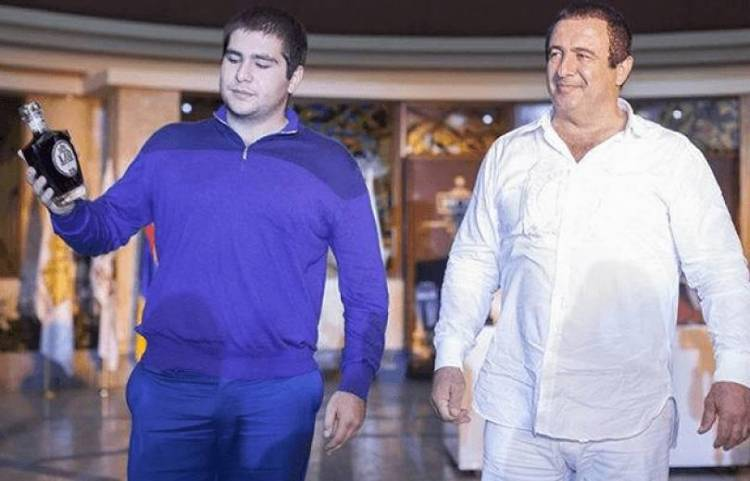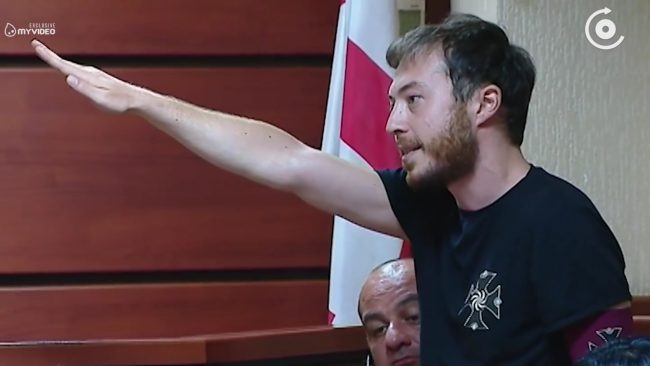
 Georgian police arrested the leader of neo-Nazi group the Nationalist Socialist Movement — National Unity of Georgia on Saturday for the illegal purchase, storing, and carrying of firearms. Giorgi Chelidze faces 3–6 years in prison if convicted.
Georgian police arrested the leader of neo-Nazi group the Nationalist Socialist Movement — National Unity of Georgia on Saturday for the illegal purchase, storing, and carrying of firearms. Giorgi Chelidze faces 3–6 years in prison if convicted.
After searching his flat, police claimed to have found several illegal firearms as well as 28 rounds of ammunition. Prosecutor’s claimed on Monday that Chelidze removed a sink in the bathroom of his house and attempted to dispose of evidence by throwing the bullets down the drain, but was caught in the act by police. Tbilisi City Court remanded Chelidze in custody on Monday afternoon pending his trial.
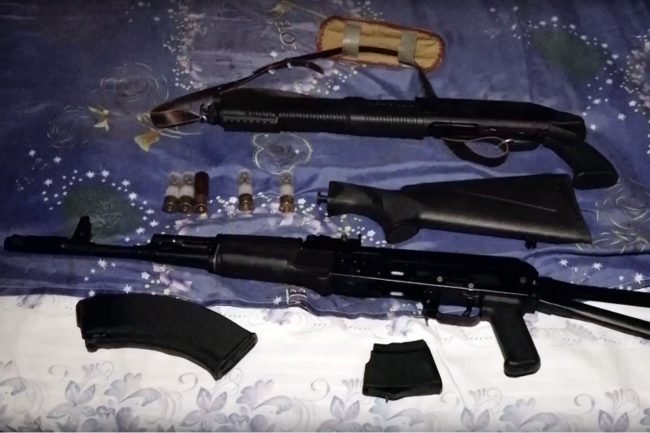
Chelidze claimed in court on Monday that his ‘only crime was his love for the country, nation, and state’. His lawyer, Gaioz Charkviani, downplayed accusations Chelidze was a ‘fascist’, a term he frequently self-identifies with, claiming that it is a Latin word meaning ‘unity’. He also claimed armbands members of the group wear, including during the court hearings, which resemble those worn by members of the German Nazi Party, were ‘borrowed from Georgian ethnography’.
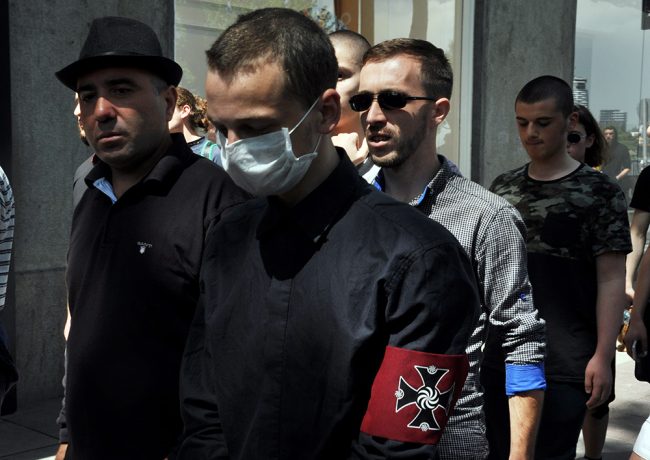
Authorities launched a probe into the National Unity of Georgia after the group published a series of videos on 27 and 30 August entitled ‘fascist Sunday’. The videos showed Chelidze and a group of men wearing the group’s armbands firing an assault rifle at an outdoor location, with instructions on how to fire the weapon.
Prior to his arrest, a post on the group’s Facebook page assured people that Chelidze was not keeping any illegal weapons at home and therefore could not face any legal problems.
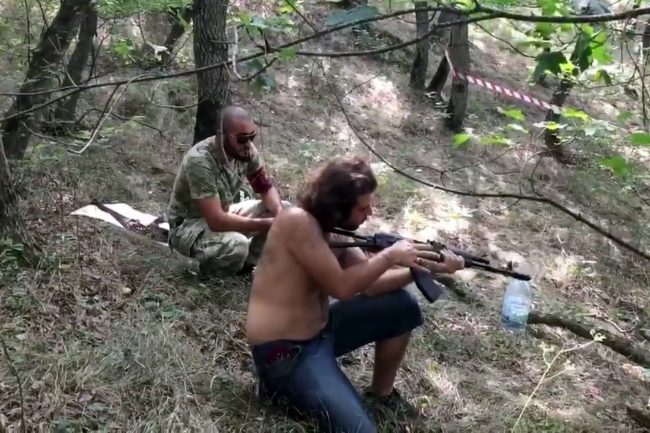
Among Georgia’s far-right groups, the National Unity of Georgia has gained visibility in recent years not least due to their threats of violence and videos posted online of members posing with guns.
In April, the group published a video address on Facebook in which two members called for ‘support for those who defend their territory’, referring to a violent incident on 8 April between a group of Nigerian students and other local residents over a football pitch in Tbilisi.
[Read more about racism and xenophobia in Georgia on OC Media: ‘You shouldn’t be here because you’re black’ — Georgia’s racism problem]
The April video, in which three pistols were visible in front of the speakers, led to a police investigation after public outcry. The probe ended after authorities claimed the pistols were pneumatic.
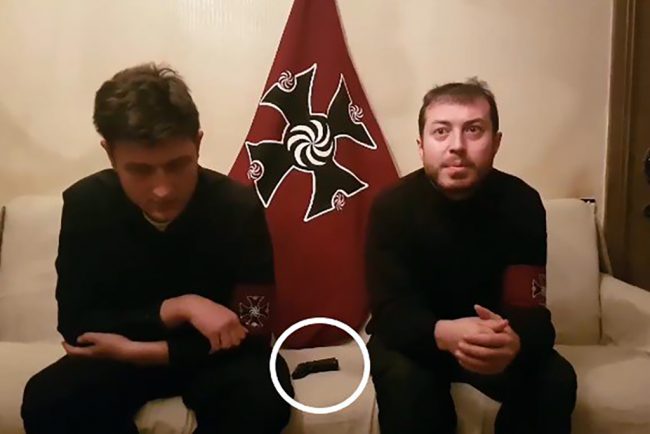
‘Threatening statements’
An investigation into the group in May into possibly threatening statements against participants of a rally protesting a police raid on nightclubs also resulted in no charges.
During counter-protests on 12–13 May co-organised by the group, they vowed to form ‘blackshirt detachments’ ‘against drug dealers and LGBT propagandists’, and chanted ‘death to the enemy’ giving Nazi salutes.
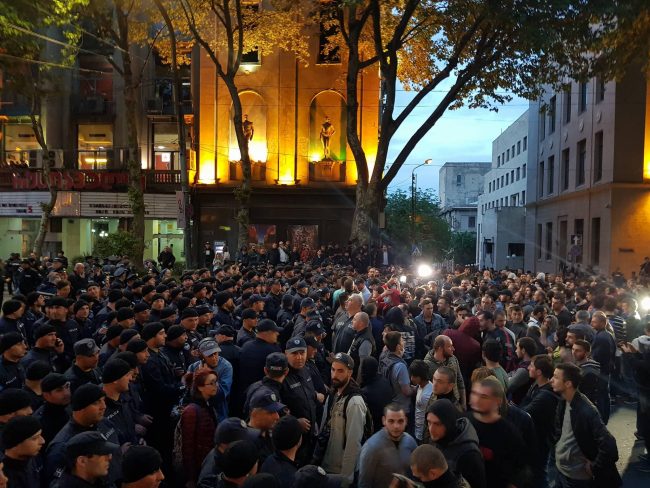
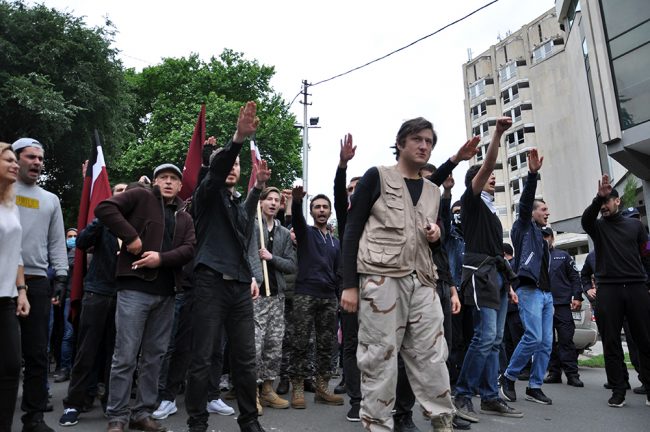
On 17 May — International Day Against Homophobia, Transphobia, and Biphobia — several leaders of the National Unity of Georgia were questioned for several hours at a police station over alleged threats they had made towards queer rights activists.
The group still managed to march through Tbilisi’s streets that day under heavy police presence, giving Nazi salutes despite being warned by the State Security Service not to use Nazi symbols in public. According to the Liberty Charter, adopted in 2011, it is illegal to publicly display communist or fascist symbols.
Neo-Nazis — giving Nazi salutes and chanting 'glory to Georgia' along #Tbilisi's Rustaveli Avenue — say they will go Kashueti Church, opposite the parliament building, to pray. #Georgia #IDAHOT #IDAHOT2018 pic.twitter.com/9KLnNpo0RV
— OC Media (@OCMediaorg) 17 May 2018
Speaking to parliament after May’s events, Interior Minister Giorgi Gakharia acknowledged there were shortcomings in the current legislation, describing it as ‘not very effective [at] fighting against aggressive and fascist-leaning groups’. The minister said that ‘if we need amendments to the law in future’ they would be put before parliament. No legal changes have since been publicly announced.
A number of rights groups have criticised the government for mishandling radical groups, insisting that the authorities should act when they continuously make direct threats towards others and incite violence.
National Unity of Georgia have frequently been interviewed or given airtime on TV. Prior to the 2017 Georgian March rally, speaking as part of the Georgian March organising committee on Khariskhis Arkhi (Quality Channel), Chelidze, who often self-identifies as a ‘fascist’, complained of being labelled one. In January 2017, the Public Broadcaster gave Chelidze and two other members of the group free air time, where they spoke of their vision and ideology.
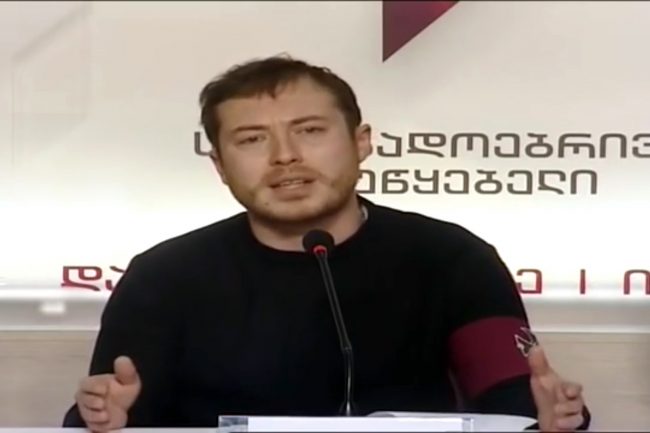
Other conservative groups distance themselves
Sandro Bregadze, leader of the ultra-conservative Georgian March group and a presidential contender for October’s presidential elections, has made several statements distancing himself from the National Unity of Georgia. He suggested that opponents were using the Neo-Nazi group to discredit Georgian March. However, Chelidze was an active participant in organising the July 2017 anti-immigration rally led by Georgian March.
Before marking 17 May 2018 as Day of Family Purity in opposition to International Day Against Homophobia, the Georgian Orthodox Church also distanced itself from the National Unity of Georgia and urged any ‘aggressive’ groups to abstain from participating in events organised by them. The Church described their events as peaceful and celebratory.




 3 September 2018
3 September 2018

